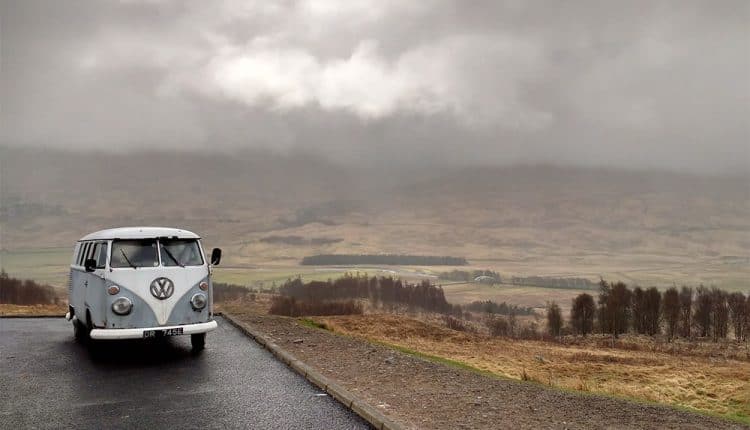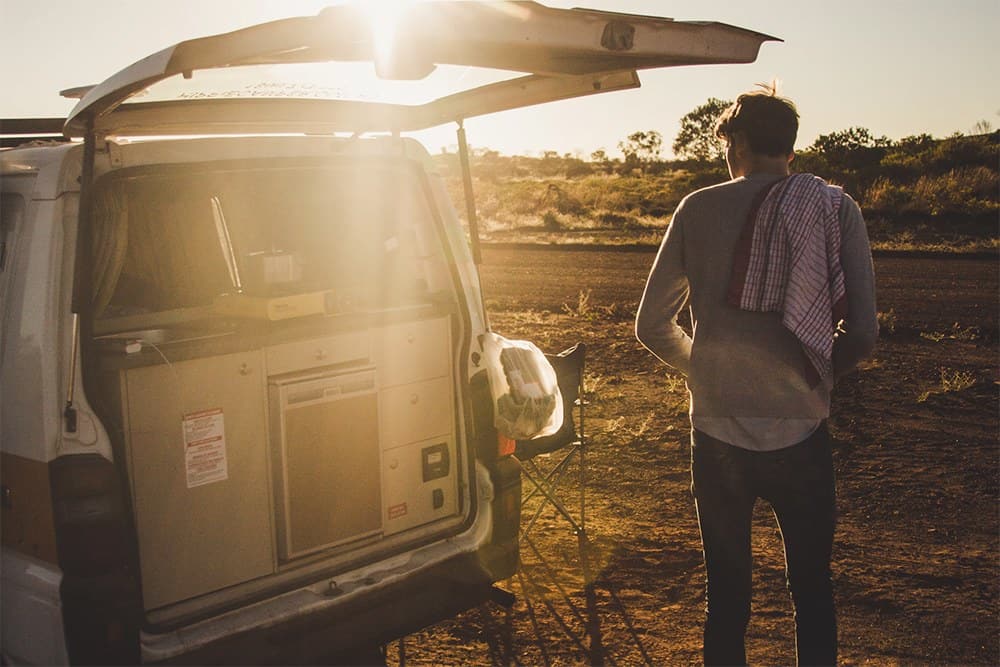It’s every campervan enthusiast’s worst nightmare – breaking down. Doing so in the UK means braving the rain to try to work out what the problem is, spending several minutes weighing up whether you know enough about campervans to fix it, and then a quick phone call and waiting for the rescue vehicle to arrive. We didn’t say it was fun, but at least it’s straightforward.
But what happens if you’re not in the UK? If, like so many adventurers, you’ve taken your wheels across the water to continental Europe – whether as a cheaper alternative to flying or through a simple desire to tour your way around the patchwork of countries that make up the continent – and disaster strikes?
Plan Ahead
As the saying goes, ‘prevention is the best cure’ – and never is this truer than when it comes to vehicle breakdown. Of course, accidents happen and things will go wrong from time to time – that’s the nature of probability and life – but being prepared for such eventualities and taking measures to avoid them arising in the first place should be top of your list.
The easiest way to avoid anxiety and stress when driving your campervan abroad is to get a breakdown package that offers cover in Europe. Most UK breakdown companies offer cover, though not all offer the same deals or packages, so it’s worth hunting around for the best price for your circumstances. You can usually get European cover added on to any existing policy. But if your current provider won’t cover you overseas, it’s worth checking out Euro Breakdown who specialise in continental cover, especially for motorhomes.
If you’re planning to travel through countryside and wilderness, avoiding the larger towns and cities, it’s worth stocking up on basic replacement items such as bulbs, fuses and wiper blades. You’d hope the repair van would stock the parts you need, but it’s risky to expect this in rural areas, and the amount you’ll have to pay out is nothing when compared to the peace of mind it provides. It’s also worth getting your campervan serviced and replacing any older tyres before you hit the tarmac, to give maximum safety and reassurance on the road.
If you’re not familiar with the local language, it’s helpful to research some key phrases – even if it’s just the equivalents for things like ‘flat tyre’, ‘the engine won’t start’ and ‘something went clunk’. Equally, check local driving laws and regulations to make sure you don’t inadvertently break the law whilst waiting for rescue. The RAC have a great fact file for most countries detailing key information for drivers.
Another option is to check if your insurance policy offers roadside assistance in Europe, whether as standard or for an additional fee, as this may be cheaper than buying separately. Plenty of insurers are recognising the popularity of such policies, and it’s especially useful to consider when your current policy comes up for renewal. Try using a campervan insurance comparison site such as Compare Van Insurance where you can search a wide range of companies that offer roadside cover alongside standard insurance to find the best price possible.
Get the Right Cover
It’s all very well knowing how to get the right cover, but you’ll also need to ensure it is the right cover. It’s easy to think in UK terms, that you just need a garage and maybe a hotel overnight if you’re stranded – especially when you’re no more than half a day’s journey from home at any given point. But when you consider how large some European countries are, and how far from home you’ll be, there are many other factors to take into account when you cross the border:
Repatriation
- If your camper van cannot be fixed within a reasonable time in the country you’re in, then many roadside cover providers will pay costs towards getting your vehicle back to the UK for repairs. However, note that they pay costs towards – so check their upper limit, as you might find you have to make up the shortfall out of your own pocket.
Repairs
- Repairing a vehicle is generally more expensive in Europe as most garages repair to manufacturer standards – which is to say, they’ll use genuine parts and won’t cut corners. While for some people this is an absolute benefit, as they know their campervan will be afforded the high quality of service it deserves, for others it’s an unnecessary expense, especially for parts. As with repatriation, cover often only funds part of the overall cost, so check how much you’ll be covered for.
Onward travel
- If you’re on day one of your holiday and disaster strikes, there’s nothing worse than being stuck in one place waiting for a garage to fix things. As a result, quite a few roadside assistance policies will pay towards onward journeys, whether that’s a hire car, hotel or other means of continuing your voyage. Useful if you’ve got bookings, or need to catch a ferry.
Number of callouts
As we all know, fixing something isn’t necessarily the magic cure that makes the problem go away. Sometimes the best you can get is a temporary solution – so if your vehicle is problem-prone, getting cover with unlimited callouts is worth it, though sometimes there are additional charges for multiple callouts for the same issue. Equally, having a provider who’ll offer to help you in the days leading up to and following on from your official holiday is useful, in case you meet with misfortune on the road to or from home.
Towing
- Not all companies like to cover campervans towing other things – for obvious reasons, since towing anything abroad brings a whole new raft of potential problems. Therefore, always check your policy to make sure you’re covered if you’re taking anything behind you.
![Campervan Breakdown in Europe – What Now?]() If You’re Not Covered
If You’re Not Covered
If you’ve already made your way to Europe and find yourself stuck, the first option is always to see if you can add European cover to your existing policy. Call your roadside assistance provider and ask them – though as with anything last-minute and urgent, you’re likely to find you pay a more hefty fee than you would to arrange this in advance.
If that’s not an option, your next task is to find a local garage that can carry out the repairs. The internet is a fantastic resource in these kinds of situations, but going into local shops will often reveal business cards for nearby professionals, and can be a good way of sourcing a mechanic. Check opening times and days, as many continental countries still take Sundays (and sometimes Wednesday afternoons) off.
If both those options fail, then the only thing left to do is make the best of things! If you’re in a scenic area, try to find somewhere to stay (either in a hotel or in your campervan, if you’ve broken down off the carriageway) and spend a few days exploring the area – after all, making new discoveries is part of the fun!
Hit the Road
Once you’ve got the cover you need, there’s nothing to stop you setting off on your adventures. All that remains is to make sure you’ve got key phone numbers with you – ideally already saved in your contact list or written on pieces of paper in purses, wallets, and in the campervan itself – as well as ID, cover documentation and policy numbers, as well as your campervan manual. If the latter eludes you, then Haynes offers a generic but comprehensive Motorcaravan Manual that gives you all the info you need on how your vehicle works. This is a fantastic resource to have, even if you’re staying in the UK.
I hope you enjoyed: Camper van Breakdown in Europe – What Now? Here are a few articles I know you’ll like reading:
Should You Purchase a Vehicle While Living Abroad?
A Quick Tour Around the Dominican Republic
8 Factors to Consider When Renting Your Investment Property Abroad
Like Our Articles?
Then make sure to check out our Bookstore... we have titles packed full of premium offshore intel. Instant Download - Print off for your private library before the government demands we take these down!


 If You’re Not Covered
If You’re Not Covered



